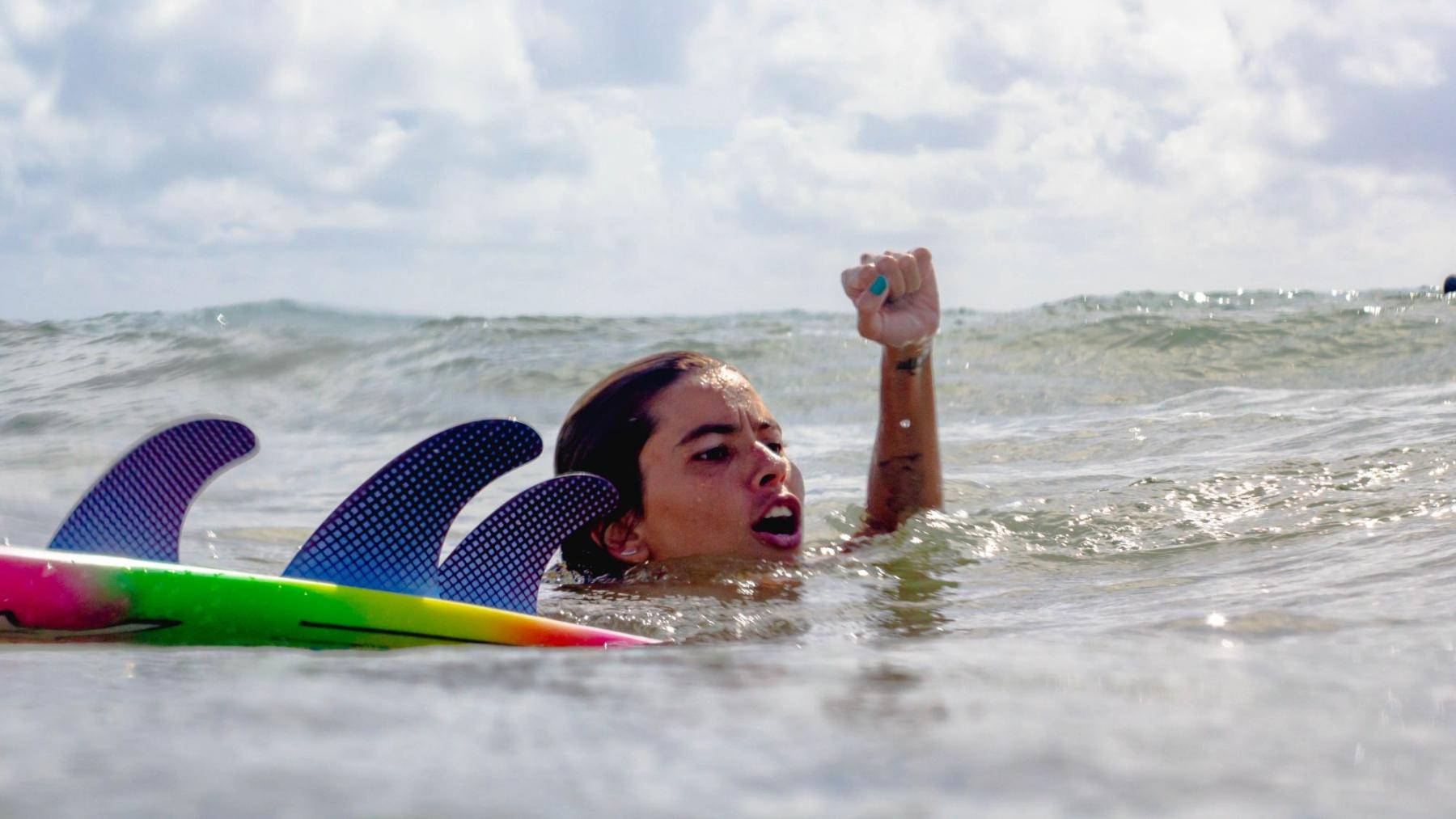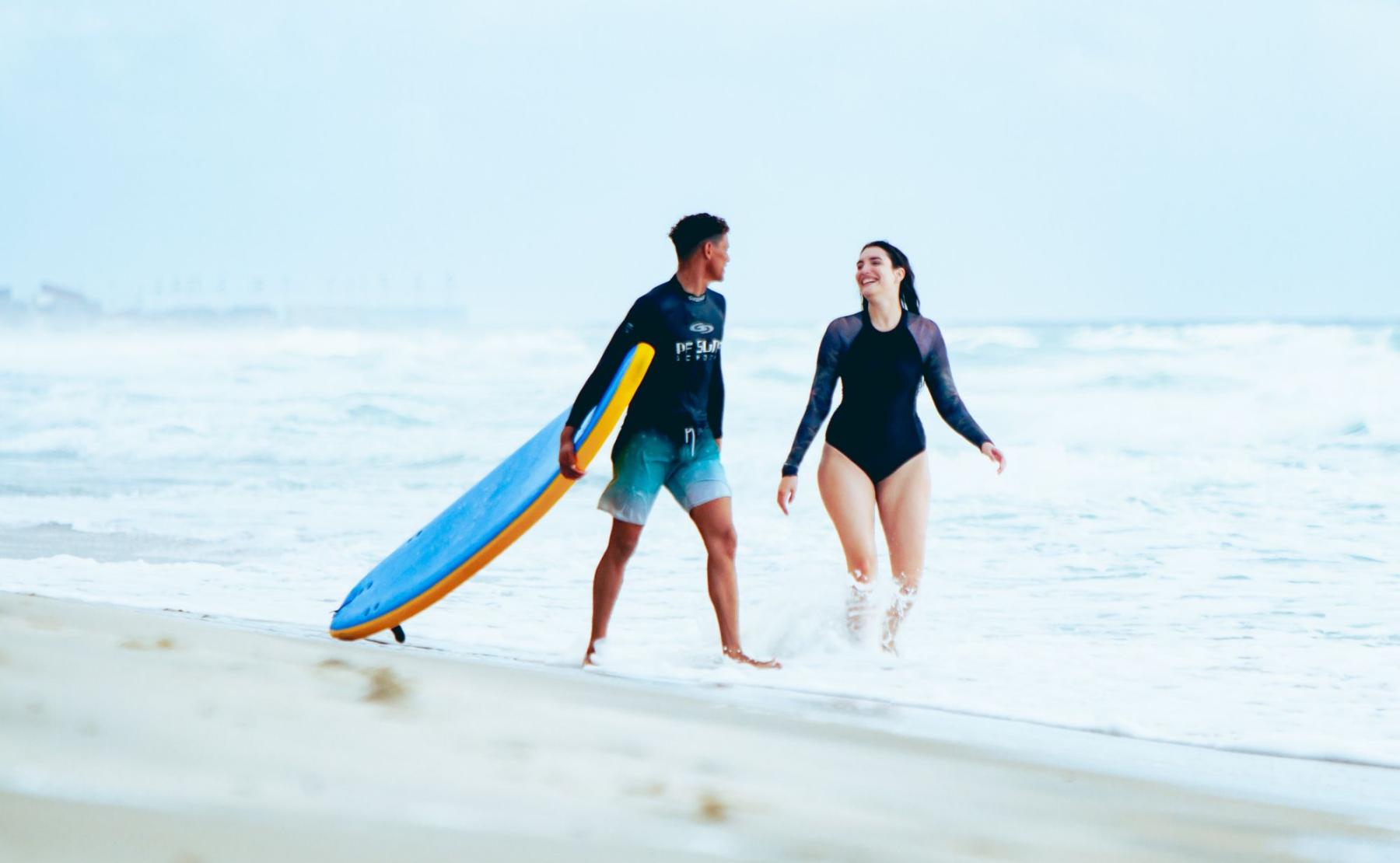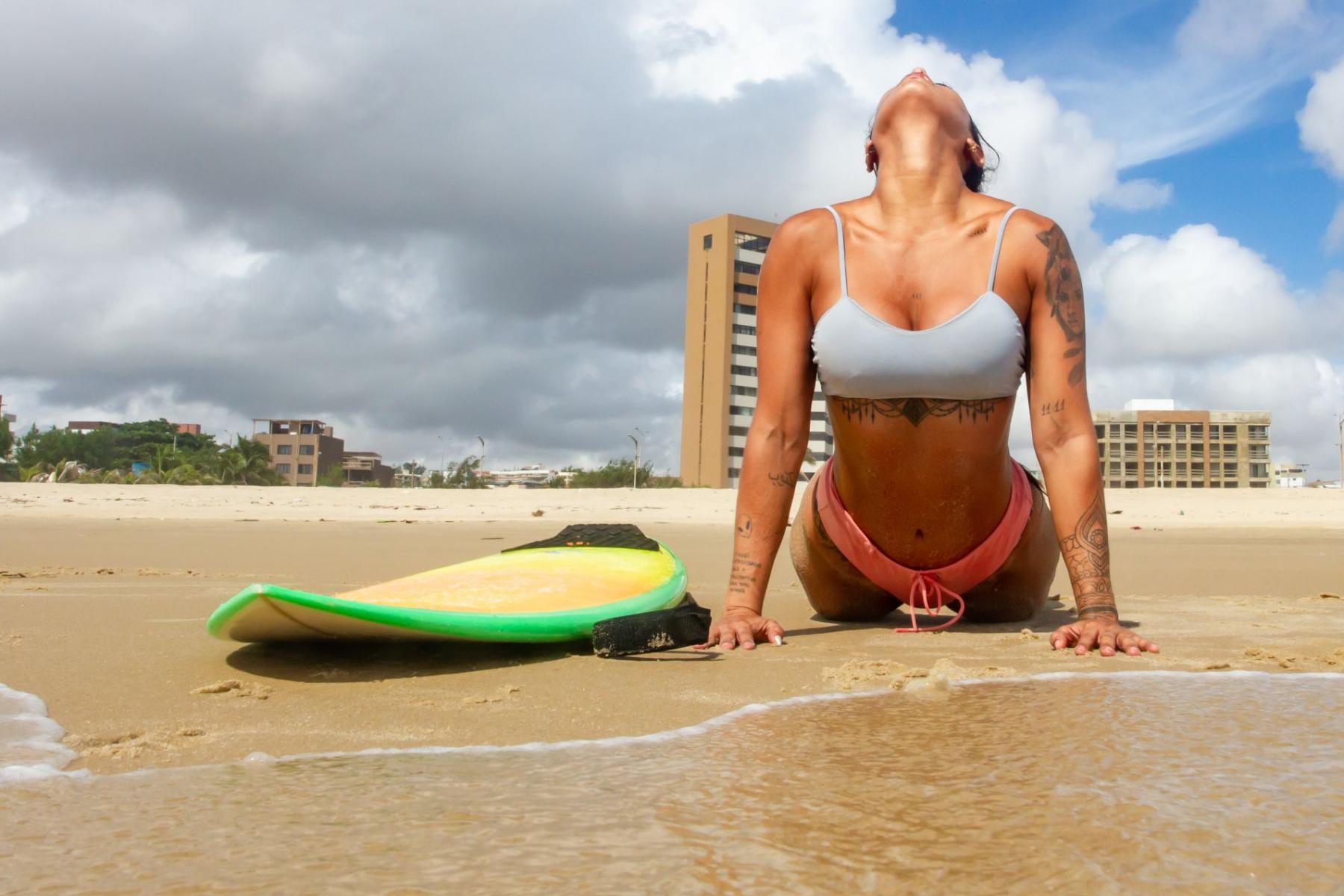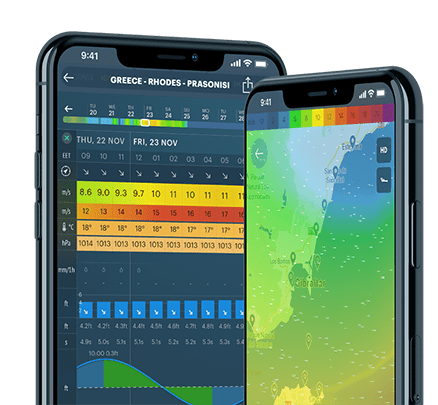
How to choose a surf school or a surf camp
Nowadays surfing has been fairly considered one of the most spectacular sports ever. And it doesn’t come as a surprise. Just take a look on some random corresponding search results on Youtube, Instagram or any other popular platform and you’re going to be stoked by passion and power of many surfers all over the world.
With the spreading of the Internet the art of riding waves has been steadily attracting people from different continents and countries, even those which are far from the nearest coast line. On top of that in 2021 surfing debuted at the Summer Olympic Games in Tokyo, Japan.
More and more beginners and pros are attracted by the hype around surfing and seeking opportunities to challenge their first wave. In this feature we are going to elaborate to newcomers what they should pay attention to in times of choosing a surf school, share some destinations and introduce a few particular spots.
What you should know before choosing a surf school or a surf camp
Before choosing a school or camp you need to know about three main things: surf instructor licenses, why actually go to school to learn to surf and how exactly they look and work. Let's deal with this in order:
Surf school: licenses for surf instructors
Many newbies wander on how to choose a surf school correctly. The expanding variety is really confusing, and you need to check several factors. One of them is licenses for surf instructors. Basically, these licenses prove compliance of a surf instructor or a school with particular global or local standards in terms of surf tuition. Here we will introduce some of them.
- The International Surfing Association (ISA), which was founded in 1964, is recognized by the International Olympic Committee as the world governing authority for the sport of surfing. The ISA regulations rule out types of surfing and other wave riding activities as well as international programs for surf coaching and instructing. ISA certificate is considered the most internationally recognized award for surf instructors.
- The Academy of Surfing Instructors (ASI) is one of the biggest world surfing authorities. The ASI courses for instructors provide comprehensive information covering surfing skills, instructional techniques, operations and safety. Established in 2003, currently, ASI operates in over 20 countries. This is another body in the decentralized world of surfing which sets international standards for education and safety measures.
- The Surging England (SE), initially known as Surf Great Britain, is a non-profit membership organization and a recognized National Governing Body for the sport of surfing in England. Created by surfers and for surfers, SGB provides professional education for surf coaches and instructors and sets standards for the UK. SGB is recognized by ISA & the European Surfing Federation.
Generally speaking, it doesn't make much difference to you which certificate your school or instructor complies with. The primary target of these standards is to satisfy legal requirements and make sure you got the right person or place.

Luiz Gustavo / Unsplash
Surf camp: why choosing
Surfing is incredibly fun, yet involves courage in tight interaction with the elements (waves, tides, wind, sun, reefs, wildlife etc). Many beginners are often deceived by how easy surfing looks, but when they get to paddling and catching waves they realize how much physical power it initially requires. So as a beginner you need to be fit and durable, eat well and sleep well.
Moreover, it takes time and expertise to find a good breaks and figure out under which conditions they work and what dangers they hide. Besides that as a first-timer you may be confused by the variety of surfboards, paddling and diving techniques, choosing a good time for surfing and other issues. It`s not that badly complex, but definitely it`s not a “read-and-apply” thing neither.
Allowing someone who is really experienced to guide you through your first steps in surfing will save you a lot of time and effort. So, for many of you who love surfing but can only afford a regular short vacation attending an appropriate surf school or participating in a surf camp seems to be the good answer. Let`s see what`s the difference between these two things.
Surf shool: concept
Briefly speaking, a surf school is a particular institution located in a particular place (mostly on the Ocean shore or very close to it), which offers not only surf education at all levels with experienced instructors, but also accommodation, meals and recreation, additional physical training and post-workout practices, entertainment, photo and video footage and so on.
Basically a surf school is a relatively small guesthouse (normally hosting up to 25 persons) where people from different places get together to surf, chill and have fun. This is the best option for first timers, who want to get an idea of what surfing is about, seek encounters with like-minded peers and feel more secure in a team.
On the contrary, a surf camp is an event rather than location. It might be set up literally in a form of a camp with tents and skewers at a popular spot or in the middle of nowhere with only you and your surf instructor. That’s a great solution for those who are eager to break free from comfort zone, challenge their qualities and explore something new.
From time to time some well-known instructors may rent a common big villa or guesthouse at a particular surf spot to catch a particular swell. They give a shout on their pages in social media in advance offering to join them in a trip to challenge some big waves or teach you basic surfing somewhere far from crowded places. Let`s dive into some more details here.

Luiz Gustavo / Unsplash
What to keep in mind when choosing a surf school or a surf camp
As with basic surf school knowledge, there are three important things to be aware of and keep in mind when choosing them: safety, prices and group vs one-to-one lessons.
Surf camp: safety
When it comes to surfing as well as any other extreme sports you should remember: safety is the top priority.
To avoid any regretful outcome make sure you carefully follow all guidances of your instructor. If you are a beginner, it will require from you decent patience to listen to all the theory, which your instructor gives you on the ground before he takes you to the ocean. If you are an intermediate or a pro visiting an unfamiliar spot you know what to do: get as much information as you can, as your guide about everything.
Especially it refers to local currents, which may wash you away, any hidden rocks and poles, wildlife (jellyfish and sea urchins) and of course waves - both on the shore and in the open water.
All the instructors are supposed to tell you how to handle your surfboard at all times: when you get in the water, reach lineup, catch a wave and come out on the beach. Regardless of how confident you might feel, don’t ever forget these advices and try to follow them no matter what.
Remember: it's always better to stay low rather than get yourself in trouble.
Surf school: prices and costs
Even though surfing might seem a relatively cheap sport at the first glance (waves are free, indeed), there is something what may deter you from choosing a place where you might want to go. Here we are talking about price of accommodation.
Due to development of international tourism more and more places which used to be hidden are getting exposed to the public and attract crowds of surfers as well as all other visitors. As a result prices are growing year to year, so that now even hardcore shacks in Indonesia may seem quite a big deal, especially in time of a high season. Just to give you an idea, a raw accommodation plan for two persons for two weeks in August will cost you 200-400 USD in Bali, 700-1000 EUR in Portugal and 1600-2000 EUR in France.
As for surf schools and camps, generally they are intensively promoted in social media, so the best spots are sold quickly. As surf trip is better when its planned in advance, matching a particular swell or weather conditions. Thus you should better book a spot in a particular school or camp beforehand.

Luiz Gustavo / Unsplash
Surf camp: group vs one-to-one lessons
Many of surf fans and amateurs are sometimes hesitating whether they should join a group or take private lessons.
On one hand, group lessons are considerably cheaper, simply because for schools and camps it's much more profitable to accommodate a number of customers at a time and it allows them to offer more options like vehicles, gear, lectures, non-surf tours, parties etc. Moreover, visitors stay in a group, make new friends, motivate each other and have good time in all ways, sometimes even ending up dating or making business together. This is definitely good for those who want to make a first try or prefers being in a company.
On the other hand, private lessons are more expensive by definition, there are rarely any additional options provided besides a surfboard, but you get all the attention of your instructor on you. It is a good deal for those surfers who aim a particular result like learning new techniques and tricks as well as challenging bigger waves and unfamiliar spots.
This is an updated version of a post, which was originally published on the Windy.app blog on July 26, 2019.
Learn more about how to read the surf / swell forecast in a special Windy.app presentation with examples and tips from professional surfers with many years of experience of riding the biggest and best waves on the planet.
Text: Windy.app
Cover photo: Nick Fewings Unsplash
You will also find useful
The Windy.app guide to surfing
How to choose the right wetsuit
Latest News
Professional Weather App
Get a detailed online 10 day weather forecast, live worldwide wind map and local weather reports from the most accurate weather models.
Compare spot conditions, ask locals in the app chat, discover meteo lessons, and share your experience in our Windy.app Community.
Be sure with Windy.app.



